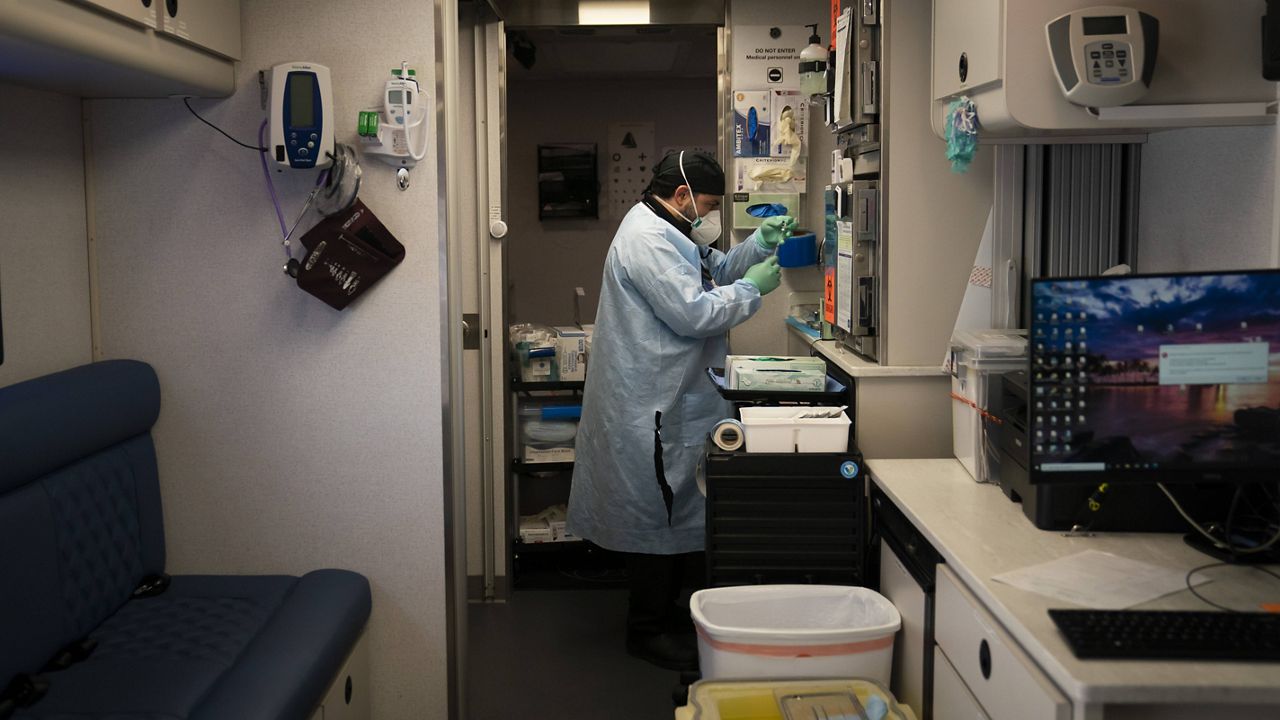ORANGE, Calif. — As colleges and universities return to in-person classes, new fears over COVID-19 infections have spread as protocols continue to be smoothed out.
Chapman University in Orange, which began most of its classes Aug. 30, is one of the schools refining its protocols. After an initial surge in COVID-19 cases nearly reached 300, numbers have dropped, with Dean of Students Jerry Price saying he expects the numbers to soon be in the single digits.
Students and parents, shocked by the surge, worried about a continued outbreak and how it might harm health and attendance credit for students.
“In class protocol, it basically is a return to pre-COVID time without any regard for transmissible disease besides mask usage,” said Isaac Marziali, a senior film production student.
Price said social distancing rules are no longer in place, but everyone must wear a mask.
Marziali and other students sent a letter to the school asking for changes, including a hybrid attendance format, allowing students worried about COVID-19 to take classes from home.
The school, Price said, is not prepared to offer any course available in-person on Zoom.
“My understanding is we do not want faculty offering an online option commensurate with their in-person class,” Price said.
The school feels its existing protocols are adequate and points to the decline in case numbers.
Right now, Chapman tests 400 to 700 students, faculty and staff each day, with the ability to test 1,000. The school boasts a 90% vaccination rate and, everyone who has not received a shot must be tested twice a week.
There are also policies in place for students who live in the same room with peers who have tested positive. Anyone who has tested positive will receive notice from the health center to quarantine. And any student, Price said, who is instructed to quarantine cannot be penalized by teachers.
But things become less clear when a student who is exposed to COVID-19 shows some symptoms but doesn’t test positive. Some students have been stuck attending class, unsure whether they had the illness, only to test positive later. Price said those situations are tricky, but it’s also problematic to allow students to self-select when to attend class or not.
While the administration believes the problem is under control, Price said the school’s COVID-19 task force is constantly reevaluating what protocols should be adjusted or instituted. Under consideration is how to handle the return of students from Thanksgiving break. The surge, Price believes, largely came from students who brought the illness from home or attended on-campus parties or events.
Surges in COVID-19 cases, including more potent mutations like the delta variant, have caused new concerns.
The Massachusetts Institute of Technology has put in place one of the more comprehensive prevention programs requiring all students, faculty and staff to undergo testing twice a week. That includes fully vaccinated people.
Andrew Noymer, a University of California, Irvine, professor of infectious diseases, said it’s a mistake for administrators to treat vaccinated people as indestructible.
“So many colleges seem to have this attitude that testing is for the unvaccinated and if you’re vaccinated you’re invulnerable,” Noymer said. “That’s just not the reality.”
Breakthrough cases have appeared, some at Chapman, where fully vaccinated students took ill with COVID-19 anyway. Health experts have long said that vaccinations can mitigate the symptoms of the coronavirus, but they do not eliminate the possibility of contracting it.
There also needs to be an evaluation of people who are infected, Noymer said, to determine whether they have spread the virus. It’s also possible to spread the infection while fully vaccinated, necessitating, Noymer said, regular testing of everyone.
While many people have been vaccinated, discussions over booster shots have continued. President Joe Biden has publicly said his administration would fund booster shots when they’re ready.
But it’s not clear when vaccinated people will need another shot.
“We just don’t have tons and tons of data showing that vaccinated people in the U.S. are losing their protection to the point that they’re susceptible to hospitalization,” he said.
But Noymer has seen anecdotal evidence out of Israel that suggests vaccinations do eventually fade in efficacy.
“I believe the deeper we go into the fall, the greater the possibility of vaccinated people getting COVID because numbers will grow, social distancing will falter and protections of vaccinations may continue to wane,” he said.



